Affiliate links on Android Authority may earn us a commission. Learn more.
Best of MWC 2016: the most impressive products from the show!
Published onFebruary 26, 2016

After a crazy week in Barcelona, Mobile World Congress (MWC) has finally come to a close. The trade show officially took place from February 22nd to February 25th, and our team is just about ready to head home from Spain.
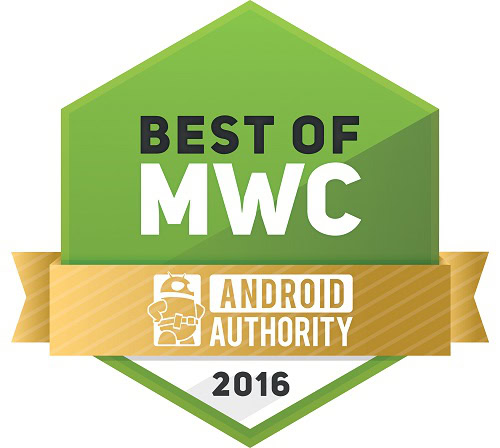
Of course, there were a number of big announcements that took place before the trade show officially began, like the official unveiling of Samsung and LG’s new flagship devices. Those weren’t the only two companies we focused on this week, though. There were a ton of great products shown off at the trade show, and we worked hard to bring you detailed coverage on all the important announcements.
We’ve just gone through the new products from the major tech companies at the show, and we’re ready to reveal our Best of MWC 2016 awards! Which devices really stood out at MWC? Let’s find out.
LG G5
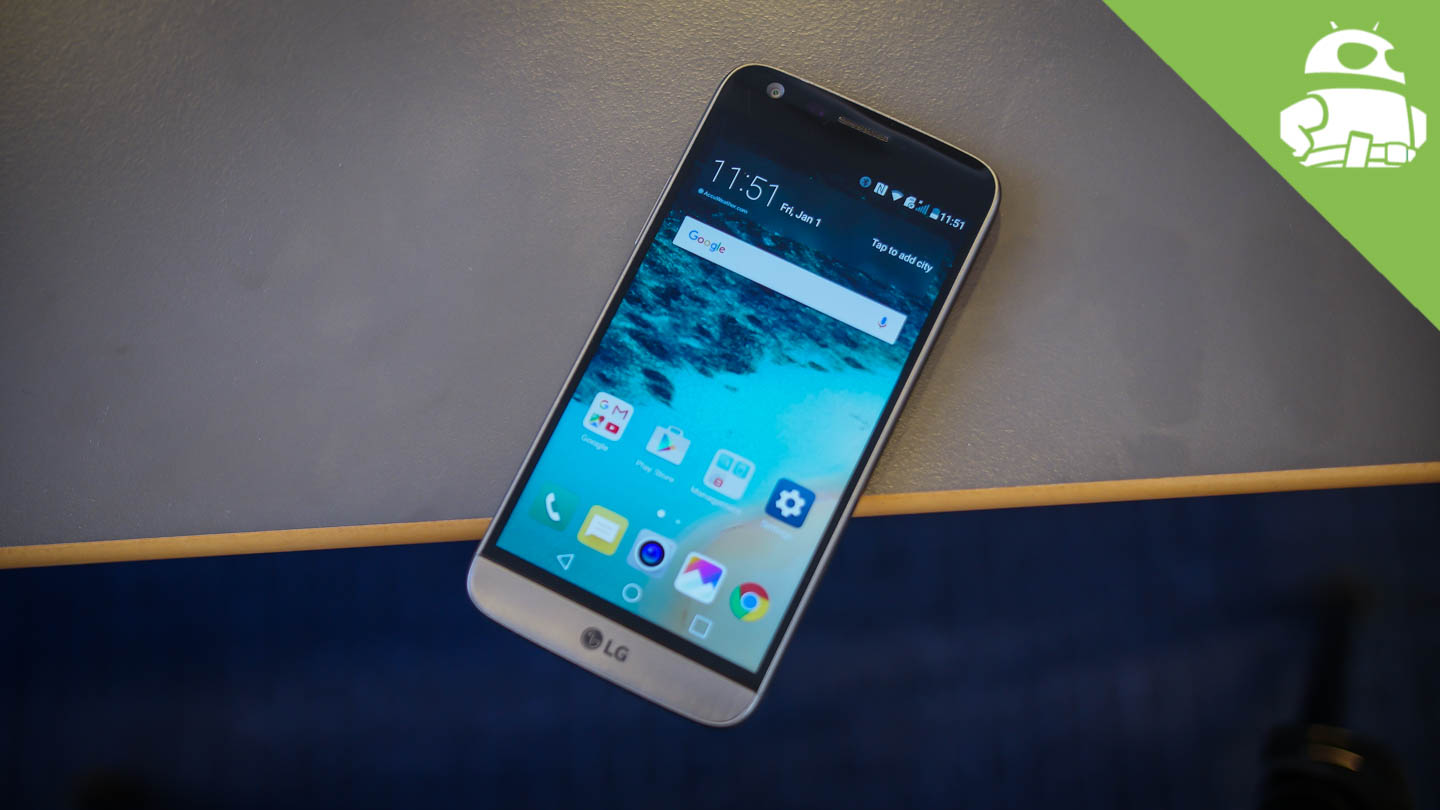
LG surprised many of us with the launch of the G5. Not only is it a stark departure from the G4, it also brings some features that not many other tech companies are doing.
For starters, LG figured out how to keep the removable battery capabilities and still have an all-metal chassis. This is possible thanks to the G5’s modular design, which allows users to swap out different modules on the bottom of the device to help them perform specific tasks. We’ll talk in greater detail about the specific modules a bit later, but the one thing you need to know is this — the fact that a company as large as LG is pushing this new and innovative idea will be huge for the mobile industry for 2016 and the years to come.
[related_videos align=”center” type=”custom” videos=”674985,675002,674813,674817″]
That’s not the only trick up the G5’s sleeve, it has some of the best specifications on the market. It comes with a 5.3-inch Quad HD LCD display with handy always-on capabilities, a top-of-the-line Snapdragon 820 processor, 4GB of RAM, expandable storage up to 200GB, and dual rear-facing 16 and 8MP cameras for taking wider shots. As we mentioned before it also comes with a 2,800mAh removable battery, which is something we flat out don’t see on devices with all-metal or glass builds.
The LG G5 is one of the most innovative, interesting and impressive device at MWC, and certainly worthy of being considered the Best of MWC 2016.
More LG G5 coverage:
- LG G5 officially announced
- LG G5 vs Nexus 6P hands-on
- LG G5 vs Apple iPhone 6s Plus comparison
- LG G5 vs LG V10 hands-on comparison
- LG G5 vs LG G4 hands-on comparison
- LG G5 vs Samsung Galaxy S7 hands-on comparison
- LG G5 feature focus: UX
- LG G5 feature focus: camera
Samsung Galaxy S7 Edge
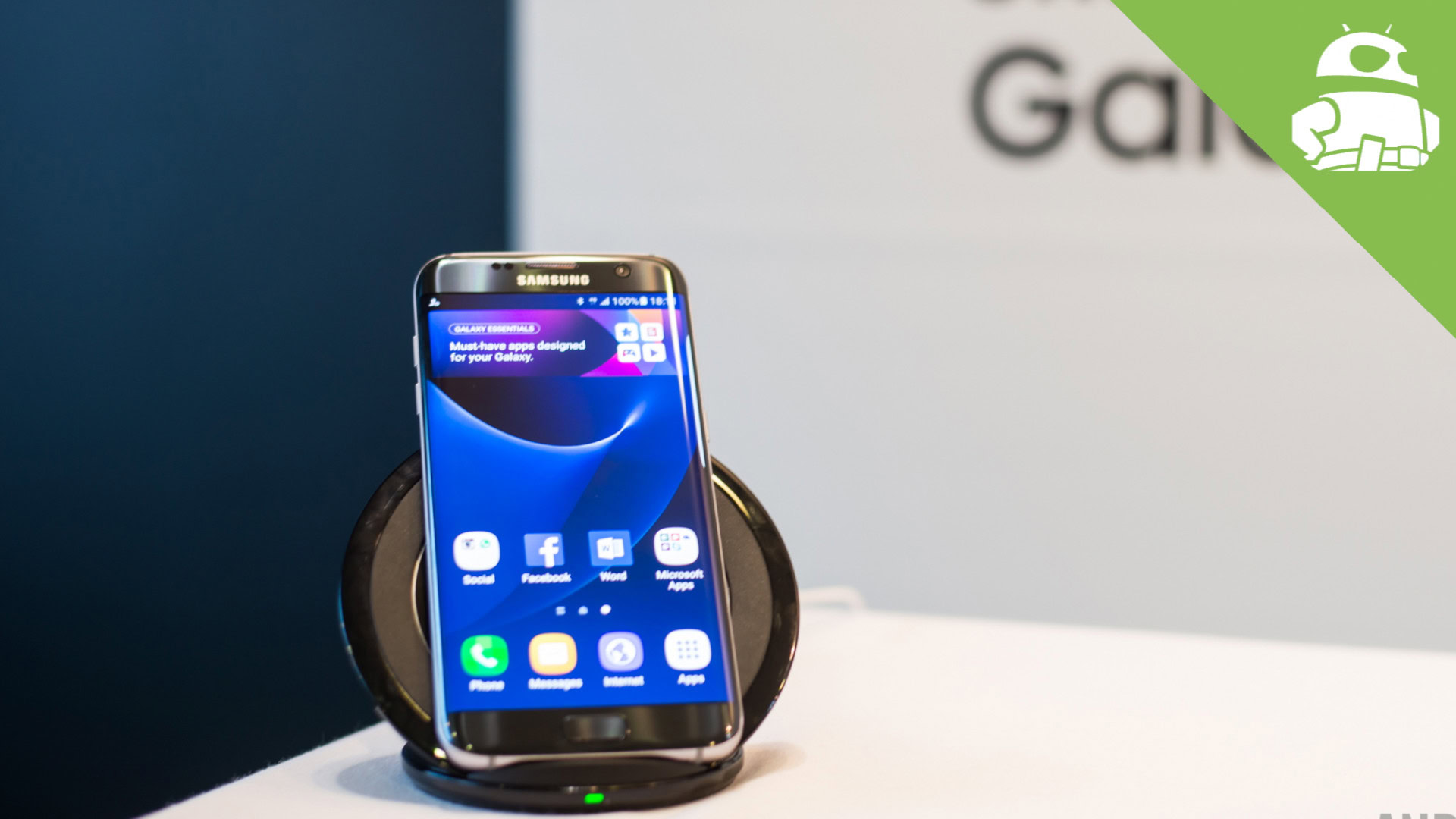
Next we have the Samsung Galaxy S7 Edge, and while it ultimately doesn’t look too much different than the Galaxy S6 Edge or S6 Edge+, some would argue Samsung didn’t need to make many changes to the design language. You see, the company drastically changed its flagship smartphone design language last year with the Galaxy S6 and S6 Edge, so it wouldn’t be smart for them to try to reinvent the wheel just one year later.
Instead of going with a standard Galaxy S7 Edge then releasing a larger S7 Edge+ later in the year, Samsung decided to create one new phone that would suffice for all the edge display lovers out there. It’s a bit bigger than the S7 proper, sporting a 5.5-inch Quad HD Super AMOLED with an always-on screen. It runs on either a Qualcomm Snapdragon 820 or Exynos 8 Octa processor (depending on the region), and is backed by 4GB of RAM. It also has microSD expansion up to 200GB, an IP68 rating for water and dust resistance, as well as a really good 12MP rear camera and a big 3,600mAh battery.
[related_videos align=”center” type=”custom” videos=”675814,675817,675004,676067″]
This time around Samsung brought a few new features to the edge screen as well, making the phone’s expected premium over the standard model much more worthwhile. You have access to up to nine total pages on the edge display. There’s an improved Apps Edge page that allows you to add up to 10 of your favorite apps for quick access, and there’s a new Tasks Edge that lets you create shortcuts for specific actions. There are much more details to talk about with the edge display, so you’ll want to check out Krystal’s UX walkthrough video to learn more.
I know what you’re thinking — why not the Galaxy S7? Even though the S7 proper is a wonderful device, we chose to give our award to the S7 Edge due to its combination of all the great features that come with the standard S7, coupled with a much more innovative use of the edge display over the S6 Edge.
More Samsung Galaxy S7 Edge coverage:
- Samsung Galaxy S7 and Galaxy S7 Edge officially announced
- Samsung Galaxy S7 vs Galaxy S7 Edge hands-on comparison
- Samsung Galaxy S7 Edge color comparison
- Samsung Galaxy S7 Edge feature focus: edge UX
LG Friends
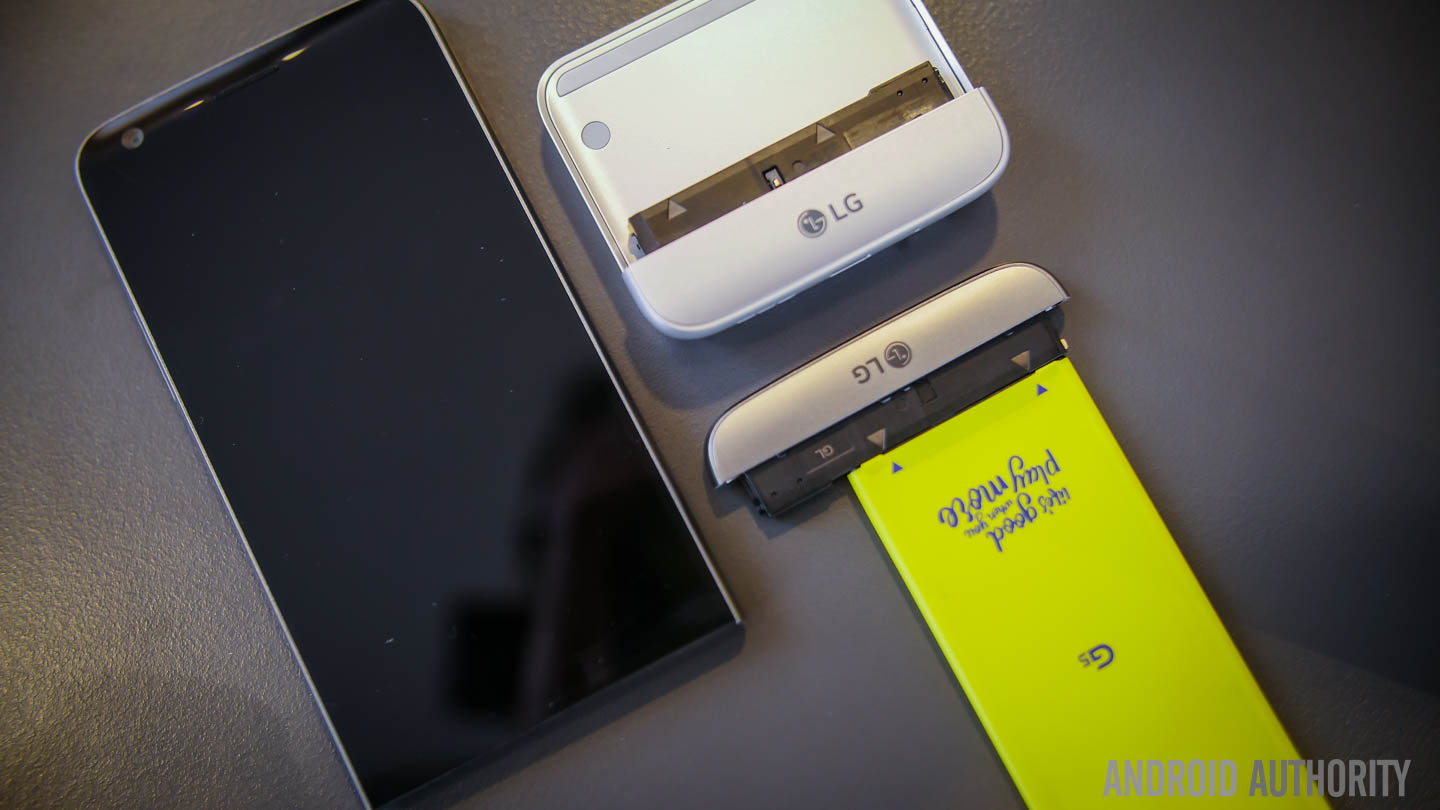
As we mentioned earlier, the LG G5 comes with a modular design that lets users swap out different modules (or ‘Friends’) and attach them to the bottom of the device. There’s a little switch on the side of the G5 that releases the bottom portion of the phone, where you can then pull off the lower part of the phone’s chassis and replace it with something else, whether that be a camera module or Hi-Fi audio adapter.
[related_videos align=”right” type=”custom” videos=”675613,674813″]
There are only two modules that launched alongside the G5 – the CAM Plus and the Hi-Fi Plus – both of which we checked out in our G5 first impressions video. While the module selection is extremely limited at this point, that doesn’t really matter. LG plans to open up this module design to third-party manufacturers, so we’ll soon begin to see more and more swappable components launch from all types of different tech companies.
The modular design of the G5 is one of the more innovative ideas we’ve seen in recent years. It’s an interesting concept, and it has the potential to make LG’s future smartphones stand out from the crowd. Although there’s still tons of room for improvement, the LG Friends have us very excited for the future of the mobile industry.
More LG Friends coverage:
Alcatel Idol 4S
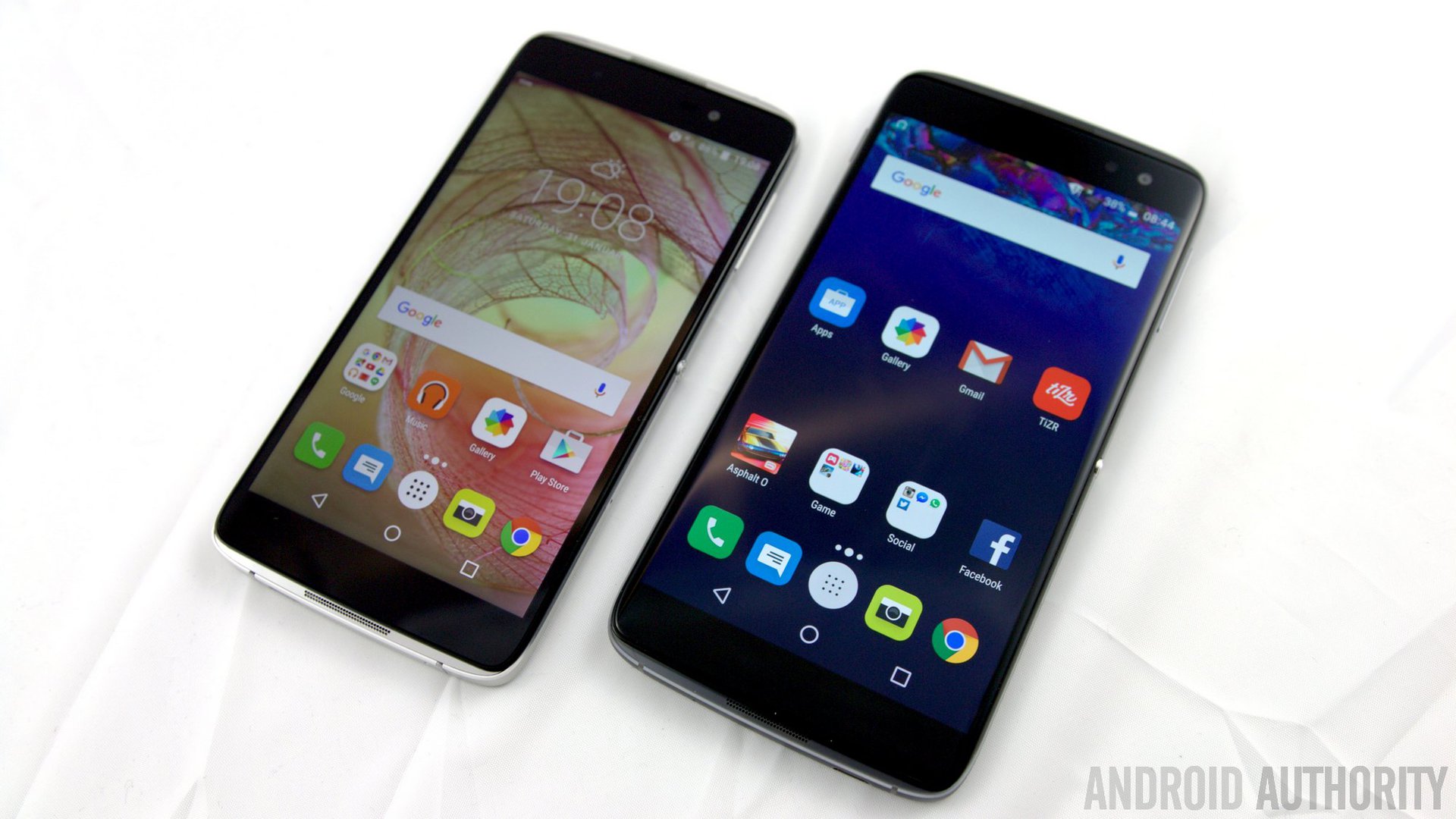
Following the huge success of last year’s budget-friendly Idol 3 handset, Alcatel (formerly Alcatel OneTouch) announced two new smartphones at MWC 2016. The Idol 4 is the more reserved of the two, featuring slightly lesser specifications and a smaller price point. The Idol 4S is the company’s flagship, featuring impressive specs and a rumored sub-$400 price point. That combination of high end affordability is exactly why the Idol 4S made its way to our Best of MWC 2016 list.
The Alcatel Idol 4S sports a large 5.5-inch Quad HD AMOLED display, and it’s powered by the octa-core Snapdragon 652 processor and 3GB of RAM. It also features a 16MP rear camera, a 3,000mAh battery, plenty of on-board storage and microSD expansion up to 512GB. What makes this, and the Idol 4, so special is the addition of Alcatel’s new Boom Key feature. The Boom Key is a physical button on the side of the device that lets the user perform different actions when the device is on different screens. So, pressing the Boom Key in standby mode will quickly launch the camera, or holding it down will take a burst shot. It will also shuffle photos in your gallery, add special effects to videos and even allow you to add a cool parallax effect to your device’s home screen.
Alcatel is also doing something very interesting with how audio works on the Idol series. Both the Idol 4S and 4 feature front and rear-facing speakers on the top and bottom, which will switch depending on how you hold the device. So if you’re looking straight at the phone, the front-firing speakers will be active, but turn the phone over and the audio will switch to the rear speakers. Alcatel has really innovated with the Idol 4S, which is why we’re happy to include it on our list.
More Alcatel Idol 4S coverage:
- Alcatel Idol 4 and Idol 4S officially announced: here’s what you need to know
- Alcatel Idol 4 and Idol 4S hands on
Samsung Gear 360
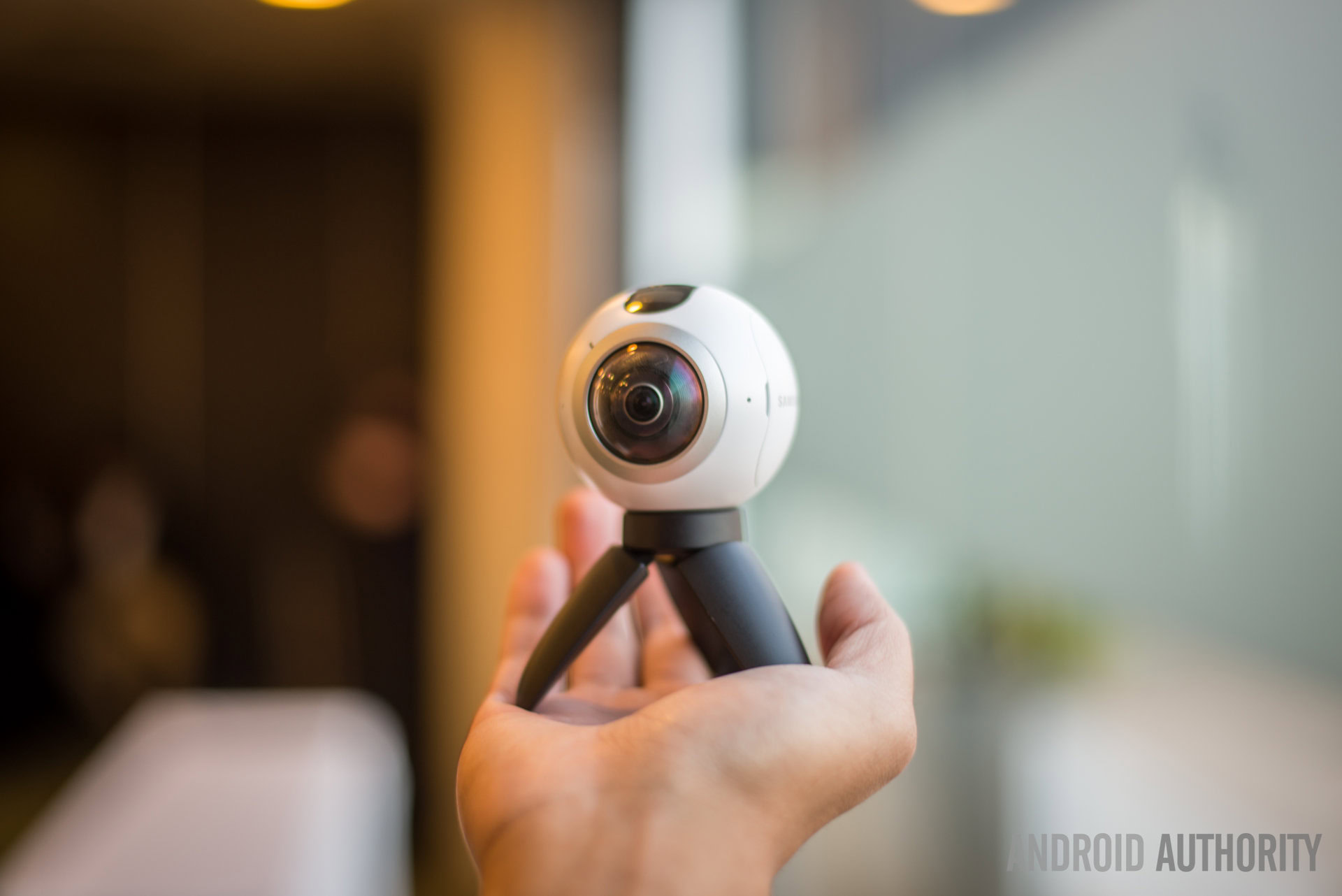
Alongside the Galaxy S7 and S7 Edge, Samsung unveiled the Gear 360 — a consumer-level 360-degree video camera. The problem with shooting 360-degree videos is that camera rigs are normally very expensive, which is what Samsung is trying fix with the Gear 360.
The 360 sports wide-angle lenses on opposite sides of the little sphere that let it stitch together a 360-degree image in just a few moments. It also has a flat bottom so it can rest on just about any surface, and comes with a little tripod. There’s a replaceable battery inside, as well as a microSD slot for adding up to 128GB of extra storage. It’s also splash and water resistant. The camera interacts seamlessly with the S7 and S7 Edge, and non-Samsung smartphone owners can use the device in conjunction with a PC application.
The pictures taken with the camera are 30MP shots, and the quality isn’t that incredible. But that’s not the point. Samsung is trying to get 360-degree cameras in the hands of the masses, which will hopefully drive the adoption of virtual reality in the near future. We don’t have any pricing information as of yet, but we’re really excited to see what the Gear 360 can accomplish over the next year.
Jide Remix OS

Jide Technology’s Remix OS has been around for a little while now. We first saw it installed on Jide’s Ultra Remix tablet, then on the Remix Mini PC. Then back at CES 2016, Jide announced that Remix OS would soon be able to be installed on just about any computer as an alpha build. That was just over a month ago, and now the company has announced that Remix OS has moved into its beta stage of testing!
Since we saw it demoed at CES, there have been a few big changes to the OS. Now you can install Remix OS on your computer’s hard disk instead of being required to use a USB drive, and the operating system has also gained 32-bit support and UEFI support to open up compatibility.
The reason why Remix OS made our list is because it’s an original idea that’s very well done. It brings Android multitasking to the next level, giving users an easy and affordable way to use Android in true desktop form. All in all it still has a way to go before it will catch on, but like we mentioned earlier, it’s still in beta. The future for Jide Technology and Remix OS is bright, and we can’t wait to see what comes of it in the next couple years.
More Remix OS coverage:
Xiaomi Mi 5 Pro
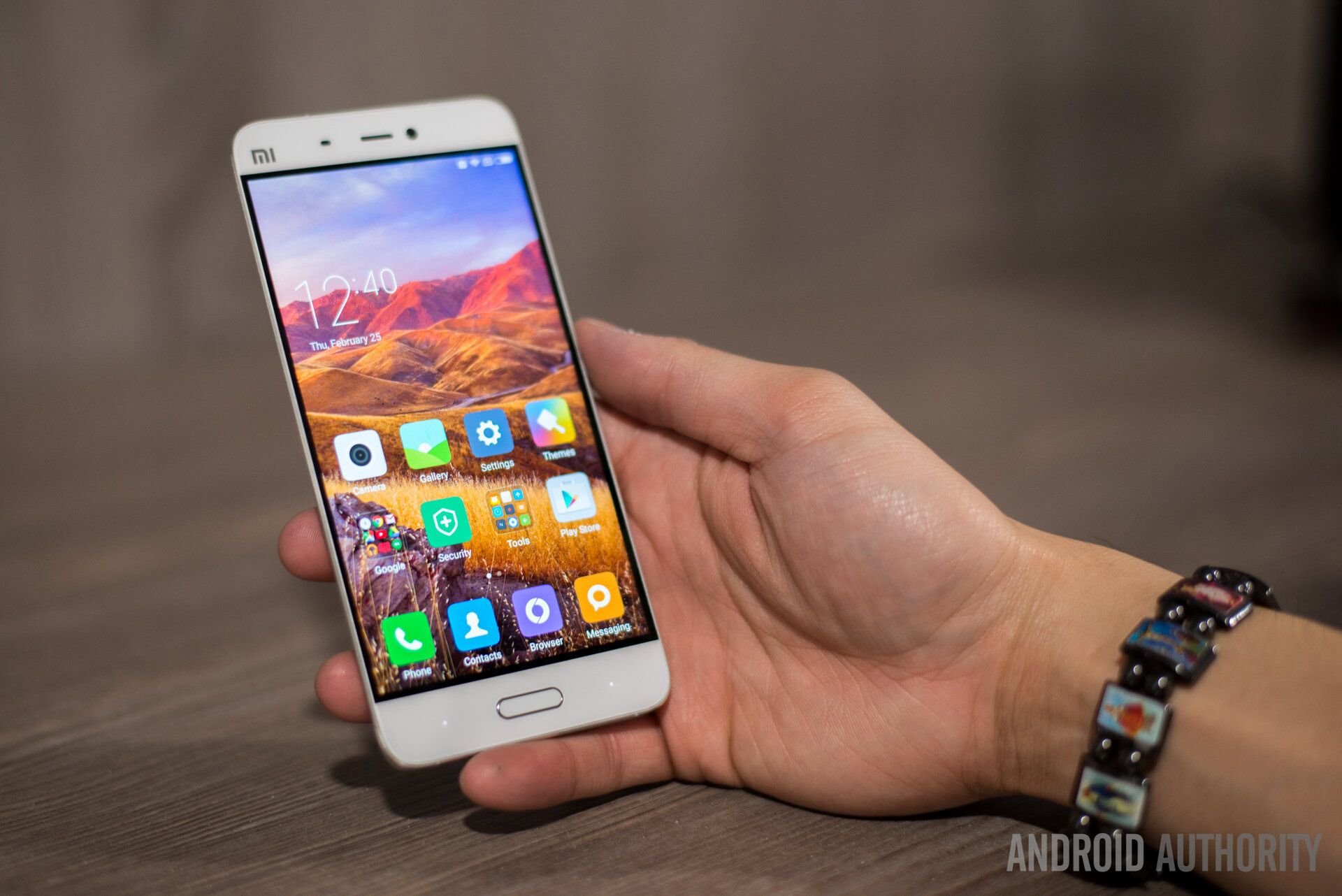
Xiaomi is a company that’s known for low-cost, high-end smartphones, and they’ve just taken the wraps off their latest flagship device, the Mi 5. Combining a very low price point and really great specifications, the Mi 5 (specifically the Pro model) was of course going to be a shoe-in to our Best of MWC 2016 list.
Let’s run down the specs first. It has a 5.15-inch Full HD display, Qualcomm’s new Snapdragon 820 processor clocked at 2.15GHz, 4GB of LPDDR4 RAM, 128GB of on-board storage and a fingerprint sensor on the front of the device – a first for Xiaomi. It also sports a 16MP Sony IMX298 sensor on the rear and a 4MP camera sensor on the front. The Mi 5 Pro, which is the highest end of the three variants, comes with a ceramic back plate rather than the glass found on the other two models. The ceramic used on the device is one of the hardest materials available and scores an eight out of ten on the Mohs hardness scale (diamond is a ten and steel is 4.5, for reference). It also runs Android 6.0 Marshmallow with Xiaomi’s MIUI 7, and will also receive weekly software updates.
The best part of this device is the price, by far. The Xiaomi Mi 5 Pro will cost just $360 without sales tax, or $410 as a direct conversion. These prices might fluctuate a little bit, but we can expect something in this area when the device comes to market.
The fact that Xiaomi could include a Snapdragon 820, 128GB of on-board storage, a fingerprint reader, 4GB of RAM and a 16MP Sony IMX298 camera sensor for this price point is just unbelievable, especially considering the Galaxy S7 and LG G5 will likely come to market for well over $500 each. Xiaomi hit the ball out of the park with the Mi 5 Pro, which is why we included it on our Best of MWC 2016 list.
More Xiaomi Mi 5 Pro coverage:
There you have it — our favorite products from MWC 2016! Some of the world’s biggest tech companies certainly had a lot to show off here, and there’s still a lot to talk about. We’re excited to bring you more coverage from all of these devices, so be sure to stay tuned to Android Authority.